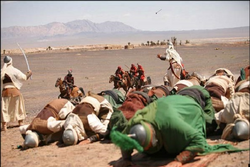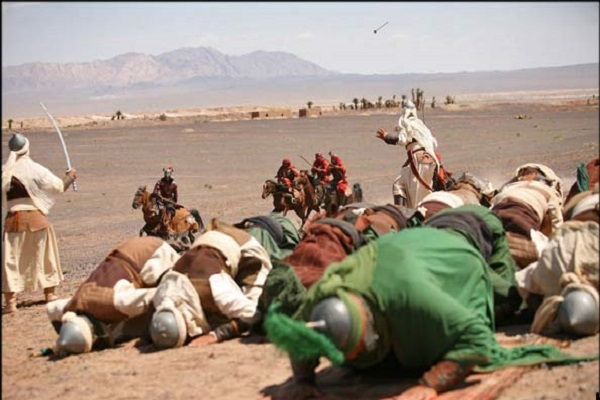Lessons from Prayers on Noon of Ashura


Quran scholar Hojat-ol-Islam Seyed Javad Beheshti, recently spoke to IQNA in a series of talks on “Social Life with Sayyid al-Shuhada (AS)” on the occasion of Arbaeen. Following are excerpts from his speech in the fourth session:
God says in verse 102 of Surah An-Nisa: “(Muhammad), if you are among them (your followers during a battle) and you call them for prayer, let a group of them carry their arms during prayer. After they have made their prostrations, let them go back to watch the enemy and let the other group who has not yet prayed, join you, carrying their arms with due precaution. The unbelievers would love to find you neglecting your arms and property and would attack you suddenly. If rain or illness make you suffer, you may place your arms aside during prayer but still observe due precaution. God has prepared a humiliating torment for the unbelievers.”
In this verse, God instructs His messenger to say hold congregational prayers in the battlefield along with his 1,700 fighters. It is in congregation that cooperation, consensus, sympathy and empathy are manifested.
Although there is danger in the battlefield and the enemy can harm the army of Islam, God orders His messenger to divide the fighters in two groups. An 800-strong group will say prayers while the other group will stand against the enemy and protect the other group.
There are two Rakaats (a single iteration of prescribed movements and supplications performed by Muslims as part of the prescribed obligatory prayers) in the prayers in the battlefield. In the first Rakaat, half of the Muslim army’s fighters followed the Holy Prophet (PBUH) in the prayers in congregation. In the second Rakaat, they finish their prayers rapidly and change their position with the other half who were defending them against the enemy.
What is this verse’s message for us? Do we attend congregational prayers even when we are in peace? Do we have so much motivation?
On the day of Ashura, Imam Hussein (AS) conveyed this important message about the significance of paying attention to prayers. He taught us that we should seek help from prayers in crises and difficulties. He also taught Muslims to be united.



